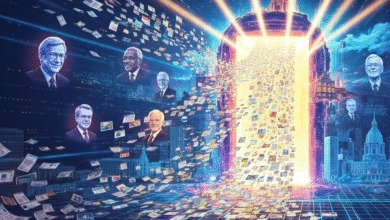Internet Archive’s Founder Laments Losses After Legal Battles

▼ Summary
– The Internet Archive’s Wayback Machine archived its trillionth webpage, leading to an “Internet Archive Day” proclamation and federal depository library designation.
– The organization recently survived years of copyright battles that resulted in over 500,000 books being removed from its Open Library.
– Founder Brewster Kahle expressed that the copyright fight “wiped out the Library” but confirmed the Archive now faces no major lawsuits or collection threats.
– Kahle has aimed since 1996 to build a digital Library of Alexandria, with the Wayback Machine launching in 2001 to preserve web snapshots.
– Legal expert Lawrence Lessig predicted the Archive would face copyright battles but believed the Wayback Machine would reshape public understanding of copyright issues.
The Internet Archive recently celebrated a monumental achievement, archiving its trillionth webpage through the Wayback Machine. This milestone prompted San Francisco to officially designate October 22 as “Internet Archive Day,” recognizing three decades of preserving the world’s digital heritage. Adding to these honors, Senator Alex Padilla designated the nonprofit as a federal depository library, highlighting its crucial role in expanding access to government publications in our increasingly digital age.
Despite these outward signs of success, the organization has only just recovered from a series of devastating copyright lawsuits that nearly forced it into bankruptcy. These legal challenges resulted in the removal of more than 500,000 books from the Internet Archive’s Open Library. Founder Brewster Kahle expressed relief that the organization survived but lamented the profound loss, stating that the gutting of the Open Library made “the world became stupider.” With no current major lawsuits threatening its collections, Kahle is now focusing on developing new initiatives to advance the Archive’s mission.
Since its founding in 1996, Kahle has envisioned the Internet Archive as a modern Library of Alexandria, though copyright lawyer Kyle Courtney jokingly added it would come “with a better fire protection plan.” The introduction of the Wayback Machine in 2001 provided a method for capturing web snapshots, which Kahle told The New York Times made building free archives “worth it.” He particularly valued how the tool brought renewed media attention to the importance of libraries. Even then, law professor Lawrence Lessig accurately predicted that the Archive would face copyright battles, while also believing the Wayback Machine would transform public understanding of these legal conflicts.
(Source: Ars Technica)
